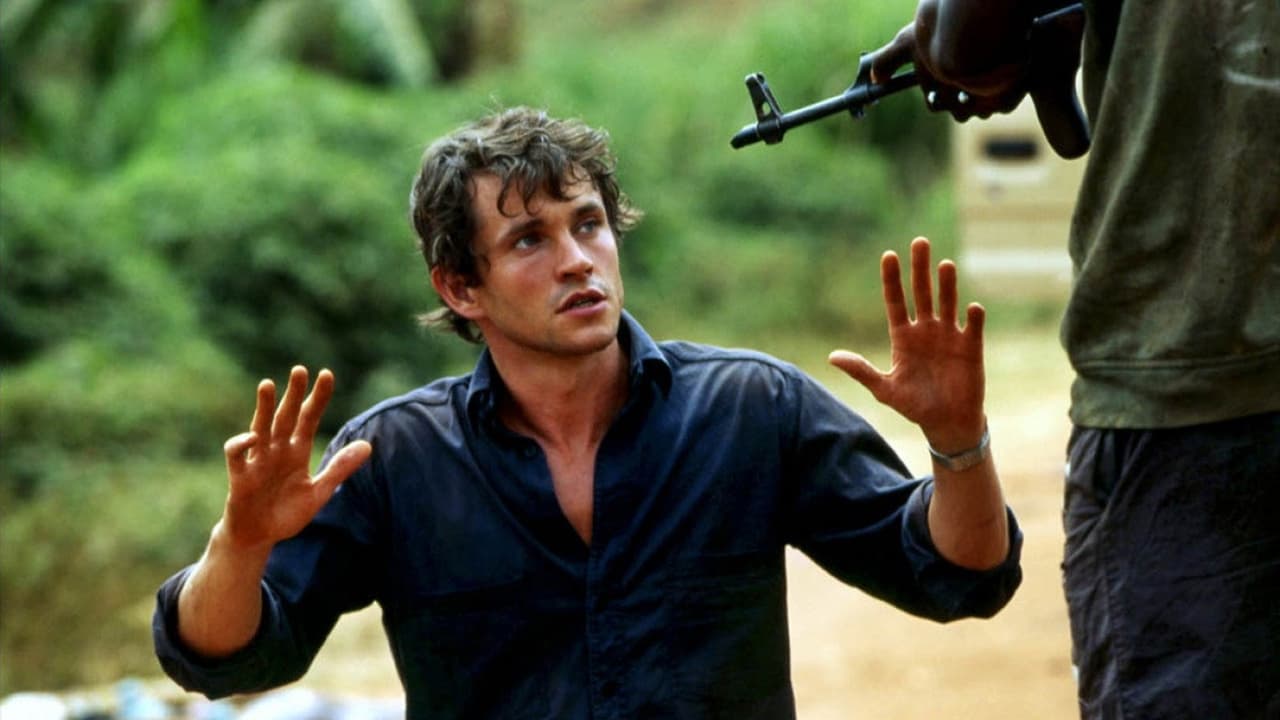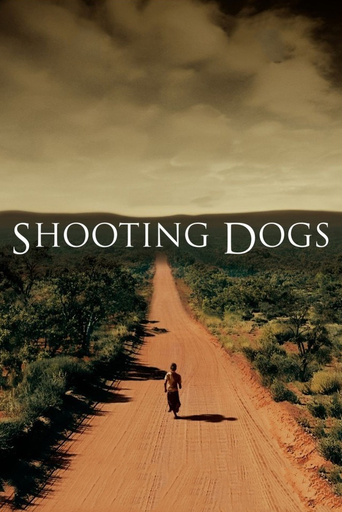

Self-important, over-dramatic, uninspired.
... View MoreOne of the worst ways to make a cult movie is to set out to make a cult movie.
... View MoreThis is a dark and sometimes deeply uncomfortable drama
... View MoreOne of the best movies of the year! Incredible from the beginning to the end.
... View MoreIts hard to make a film that depicts a recent era of genocide where many people, ethnic groups and organisations do not come out of it so well.Director Michael Caton-Jones takes up the challenge and shot this film in an area of Rwanda where some of the violence occurred, using a crew who were personally affected by the slaughter.John Hurt plays a Catholic priest and Hugh Dancy an English teacher, who are caught up in the events of the genocide. They now see people they knew choosing sides, even committing violence.Once the conflict between Hutus and Tutsis went out of control in the early 1990s the UN troops just stood by and watched and eventually left many without protection to be slaughtered.The film tries to get us to care for the characters knowing full well some of them will be slaughtered, even children and babies. It also has to make some political criticisms about governments and UN troops as well as being an adventure with Hurt trying to save some people from the mindless violence.The film does not wholly succeed, there is no hook here that grabs you like it did in a film such as The Killing Fields. Still its an important subject matter, a lot of the violence is implied as the film does not want to glory in the genocide but it is still strong, grim viewing.
... View MoreWhere do I start.It has been a very very long time since I have seen a decent film. The last film I felt so touched and moved by I had seen was the pianist and the (harvey) milk film from 2008.Those 2 fantastic movies aside, this film absolutely wiped the floor with its emotional attachment. Being of African descent myself, rocked me with even more tears and sympathy watching this film.The film is set in the genuine places all the genoicides and massacres hasppenned. Many of the actors in the movie were there at the time of the genocide in 1994. Afterall this is based on a true events.Watching this film truly immersed you deeply into the conflict of 1994. You truly feel like you were there and unfortunately powerless in being able to change what has already been so dramatically written into history.I felt so guilty that I, like many thousands if not millions of people living in the West had very little idea of what had happened in Rwanda. Granted I was only 11 years of age at the time; such a potent event in history deserves to be remembered by the world as a whole and never forgotten, especially by those who played little but an obvious participation in the events that occurred.The acting/cast and soundtracks are all faultless in taste and selection. I have not only never been so moved but never cried so much in one movie.It is only when you watch a movie like this you realise how so for granted you take your life and opportunities bestowed upon us here in the UK.The producers/actors/directors should be applauded for making what will be remembered at least in my heart as one of the best films in movie history. Such a pity that it will never get the worldwide acclaim even if silently, it truly deserves. Perhaps this is a reflection of the world we still live in. I honestly believe with time this will become a timeless classic and grow notorious as more people find this treasure in their local movie store.Buy it, rent it...just make sure you watch it.
... View MoreJohn Hirt was not at all convincing in the role of Christopher, the Catholic priest; I got the distinct impression he was either too hot or bored to make a real effort. Otherwise the film was way ahead of 'Hotel Rwanda' which someone quite rightly said was too Americanised both in terms of plot and implementation, i.e. sanitised. Yes, why the makers had to make such an elementary mistake like giving the Belgian captain the insignia of a sergeant is quite beyond me. Small wonder the captain, Dominique Horwitz, also looked a touch cheesed off at times! Sadly, although a very effective vehicle for putting over the horrors of the Rwandan genocide at the time, I doubt very much 'Shooting Dogs'will make the very slightest difference to the plight of all sub-Saharan peoples currently exploited for their natural resources by the First World countries of both East and West.
... View MoreCan't believe this is the same director who made one of my favorites of all time, "Doc Hollywood"! What a range. But, here again, wonderful creation of sense of place. If you think "Hotel Rwanda" did it all, think again. In many ways this film is more horrifying with its focus on a single technical college where many Tutsis took refuge despite the impotence of UN soldiers based there. I also admired the inclusion of details that showed the Rwandans not simply as passive victims, but organizing themselves within the compound to promote their own welfare and resisting where possible.The film ably depicted the "thuggery" of the Hutu militias. Scholars of ethnic conflict have noted how thugs use the cover of ethnicity to exploit unsettled situations. The solution? Prompt "policing", a strong show of force, as could have been provided by the UN.
... View More